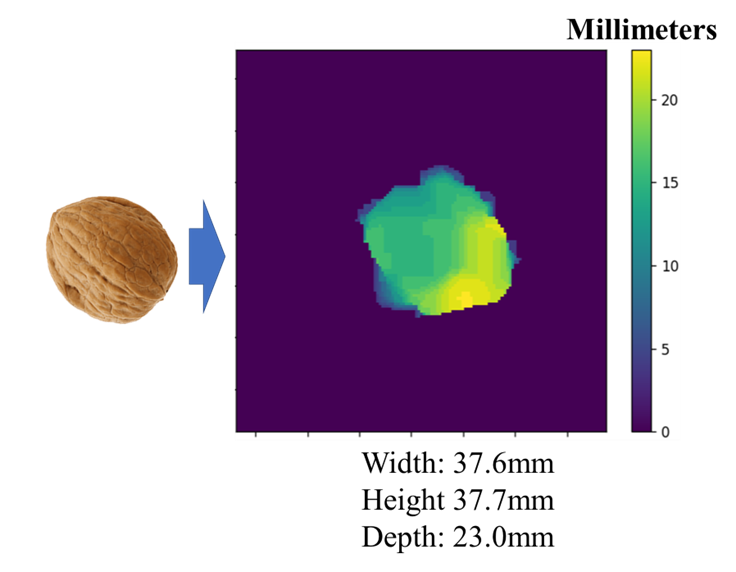Walnut inspections are currently done by visual and manual inspection processes. Observing color and firmness of a sample is the state of the art today. This is a time consuming and labor-intensive process. Developing a low-cost process to scan walnuts for quality and safety can expedite the process.
LLNL’s novel technology automates the inspection process by using a scanning system that captures data within the walnut shell without having to open the shell. The system output gives a visual image inside the walnut shell sufficient to evaluate and rate the quality of the walnut. The system uses a camara and radar that can capture data at a rapid rate. This improves speed and reliability from fully manual inspections. The low-cost system can be accessible to farmers and government inspectors.
The low-cost system allows farmers and inspectors to rapidly rate walnut quality and safety, but could be broadly applicable to the inspection of other agricultural products. This will allow farmers to assess the quality and value of their crops much faster than the current manual process. Markets prices are based on product quality. This system will allow farmers to sort their crops faster and determine the value of their crops much more efficiently.
This LLNL technology has numerous advantages over traditional manual inspections, such as:
- Rapid inspection
- Low-cost system evaluation
- Improved accuracy
- Digital records rather than paper records
- Automated Agricultural Crop Inspection for Food Quality
- Automated Agricultural Inspection for Food Safety
Current stage of technology development: TRL 4-5
LLNL has filed for patent protection on this invention.


